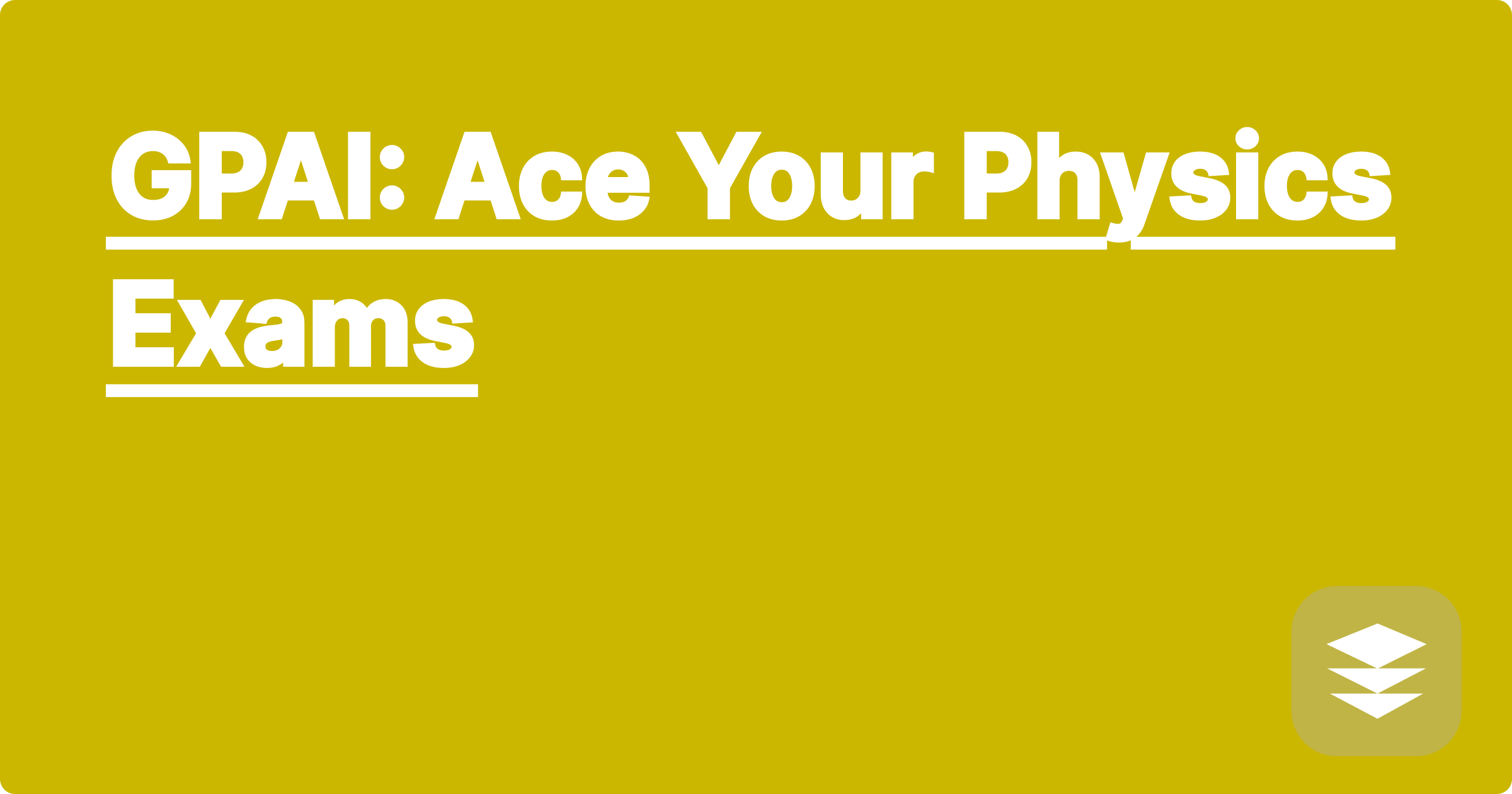
STEM fields, particularly physics, often present a formidable challenge: mastering complex concepts and applying them effectively, often under the pressure of exams. The sheer volume of information, intricate formulas, and abstract theories can feel overwhelming. Artificial intelligence offers a powerful new approach to tackling these challenges, providing students and researchers with tools to personalize learning, deepen understanding, and improve problem-solving skills. AI can act as a personalized tutor, offering explanations, generating practice problems, and even helping to break down complex concepts into more manageable pieces.
This matters significantly for STEM students and researchers, especially those facing time constraints or struggling with specific concepts. Leveraging AI can lead to a more efficient and effective learning process, ultimately contributing to academic success and a deeper grasp of the subject matter. By integrating AI tools into their study routine, students can gain a competitive edge, not only in exam preparation but also in developing a more profound understanding of physics. This approach empowers students to move beyond rote memorization and engage with the material in a more meaningful and interactive way.
Physics, at its core, involves understanding the fundamental laws governing the universe. This encompasses everything from the motion of subatomic particles to the behavior of galaxies. Students often grapple with the mathematical formalism required to express these laws, such as vector calculus, differential equations, and linear algebra. Furthermore, applying these theoretical concepts to real-world problems can be challenging, requiring a strong intuitive understanding and problem-solving skills. The abstract nature of many physics concepts can make it difficult for students to visualize and grasp their implications. This difficulty is often compounded by the limited availability of personalized guidance and the pressure to perform well in exams.
AI tools like ChatGPT, Claude, and Wolfram Alpha offer a powerful suite of functionalities to address the challenges of learning physics. ChatGPT and Claude, for example, can be used to generate explanations of complex concepts, answer specific questions, and even provide step-by-step solutions to problems. These AI assistants can adapt to different learning styles and provide personalized feedback, making the learning process more engaging and effective. Wolfram Alpha, on the other hand, excels at symbolic computation and can be used to solve complex equations, perform calculations, and visualize mathematical functions. By combining the strengths of these different AI tools, students can create a comprehensive learning environment tailored to their specific needs.
To effectively utilize AI for physics exam preparation, begin by identifying the specific areas where you need assistance. This might involve reviewing lecture notes, identifying challenging concepts, or going through practice problems. Once you have pinpointed your areas of weakness, you can start using ChatGPT or Claude to generate explanations and examples. For instance, you could ask ChatGPT to explain the concept of quantum entanglement or to provide an example of how to apply Newton's laws of motion. Next, use Wolfram Alpha to verify your calculations, solve complex equations, and explore the graphical representation of functions. This iterative process of learning, practicing, and verifying can significantly enhance your understanding and problem-solving skills.
Consider the concept of projectile motion. You could ask ChatGPT to explain the factors affecting the trajectory of a projectile, such as initial velocity, angle of projection, and air resistance. Then, you could use Wolfram Alpha to calculate the range and maximum height of a projectile given specific initial conditions. For example, you could input the query "projectile motion initial velocity 20 m/s angle 45 degrees" into Wolfram Alpha. It would then provide you with the trajectory, range, maximum height, and flight time. Furthermore, you can explore the relationship between these parameters by varying the initial conditions and observing the changes in the trajectory. Another example could be understanding the Doppler effect. You could ask ChatGPT to explain the concept and provide real-world examples. Then, use Wolfram Alpha to calculate the observed frequency shift given the source frequency, the velocity of the source, and the velocity of the observer. You could input "Doppler effect source frequency 1000 Hz source velocity 20 m/s observer velocity 10 m/s" into Wolfram Alpha, and it would calculate the observed frequency.
To maximize the benefits of AI in your physics studies, it's important to use these tools strategically. Don't rely solely on AI for answers; instead, use it as a supplement to your regular study routine. Actively engage with the material by asking questions, formulating your own explanations, and working through practice problems. Use AI to clarify confusing concepts, verify your calculations, and explore different problem-solving approaches. Remember that AI is a tool, and its effectiveness depends on how you use it. Combine AI-powered learning with traditional study methods like reviewing textbooks, attending lectures, and participating in study groups for a comprehensive approach.
To conclude, integrating AI tools like ChatGPT, Claude, and Wolfram Alpha into your physics study routine can significantly enhance your understanding, improve your problem-solving skills, and boost your exam performance. By actively engaging with these tools and using them strategically, you can unlock your full potential and achieve academic success in physics. Start exploring these AI tools today and discover how they can transform your learning experience. Remember to focus on understanding the underlying concepts and applying them to real-world problems. Embrace the power of AI and embark on a journey of deeper learning and academic achievement.
GPAI: Your Coding Homework Helper
GPAI: Streamline Your Research
GPAI: Differential Equations Solved